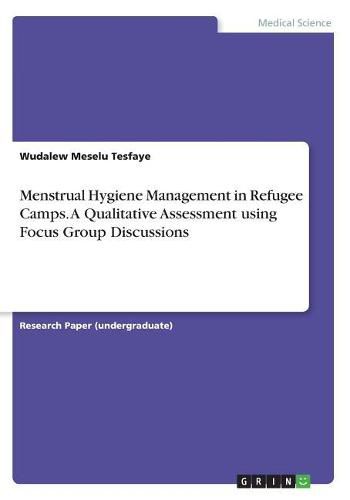Readings Newsletter
Become a Readings Member to make your shopping experience even easier.
Sign in or sign up for free!
You’re not far away from qualifying for FREE standard shipping within Australia
You’ve qualified for FREE standard shipping within Australia
The cart is loading…






Research Paper (undergraduate) from the year 2015 in the subject Medicine - Public Health, grade: 3.82, language: English, abstract: Menstrual hygiene is a subject that has thus far been largely neglected by public health literature, including the WASH sector (water, sanitation, and hygyiene). As a result, millions of women and girls continue to be denied their rights for WASH, health, education, dignity and gender equity. This study uses a Focus Group Discussion in order to identify the access to menstrual hygiene management (MHM) materials; challenges and the utilization behaviors of refugees and to assess their preference for type of MHM materials. Key findings: Different experiences of sanitary pads utilization were observed among the discussants before their arrival to the camp. Those women coming from an urban area had experience with sanitary pads utilization, while those women coming from rural parts of Somalia used to use cloths. Conclusion: As the High Commissioner’s Five Commitments to Refugee Women include the provision of sanitary materials to all women and girls of concern, it will be good if the WASH sector and other partners give more attention (besides UNHCR’s concern) to address the women’s demand for MHM items. The disposable type of sanitary pads was the preferred MHM item. Recommendation: It is recommendable to connect school’s latrines with water for the better management of girls’ menstrual hygiene.
$9.00 standard shipping within Australia
FREE standard shipping within Australia for orders over $100.00
Express & International shipping calculated at checkout
Research Paper (undergraduate) from the year 2015 in the subject Medicine - Public Health, grade: 3.82, language: English, abstract: Menstrual hygiene is a subject that has thus far been largely neglected by public health literature, including the WASH sector (water, sanitation, and hygyiene). As a result, millions of women and girls continue to be denied their rights for WASH, health, education, dignity and gender equity. This study uses a Focus Group Discussion in order to identify the access to menstrual hygiene management (MHM) materials; challenges and the utilization behaviors of refugees and to assess their preference for type of MHM materials. Key findings: Different experiences of sanitary pads utilization were observed among the discussants before their arrival to the camp. Those women coming from an urban area had experience with sanitary pads utilization, while those women coming from rural parts of Somalia used to use cloths. Conclusion: As the High Commissioner’s Five Commitments to Refugee Women include the provision of sanitary materials to all women and girls of concern, it will be good if the WASH sector and other partners give more attention (besides UNHCR’s concern) to address the women’s demand for MHM items. The disposable type of sanitary pads was the preferred MHM item. Recommendation: It is recommendable to connect school’s latrines with water for the better management of girls’ menstrual hygiene.